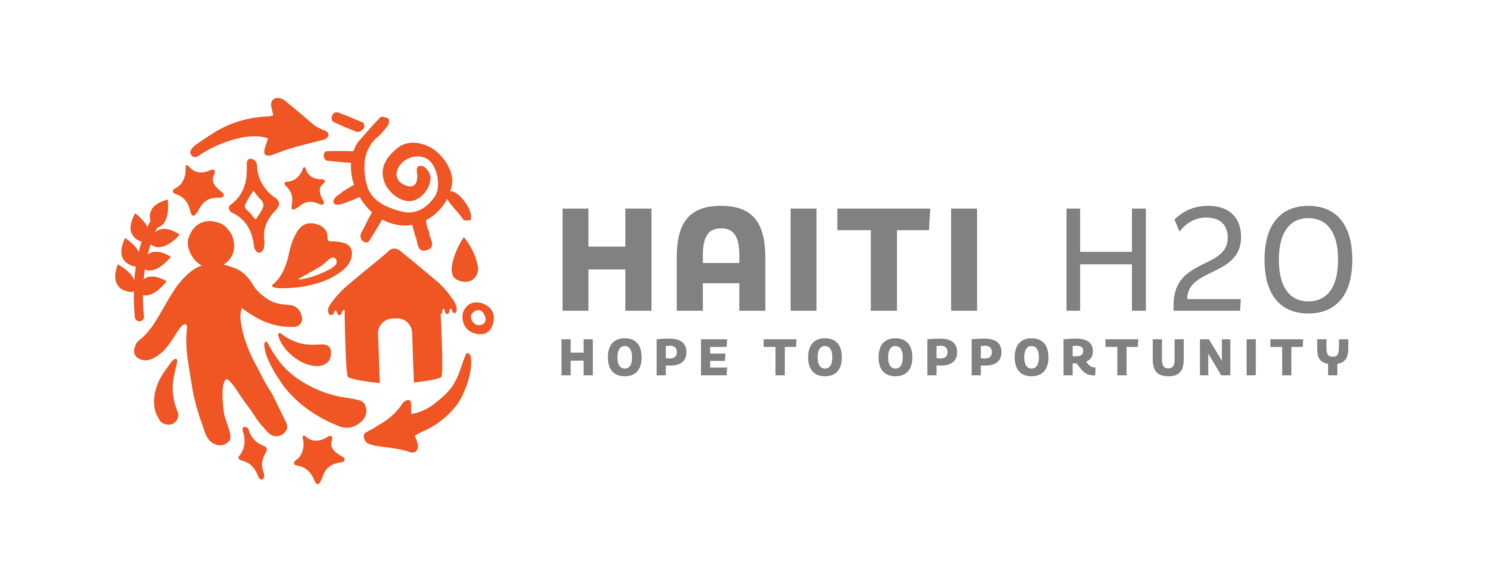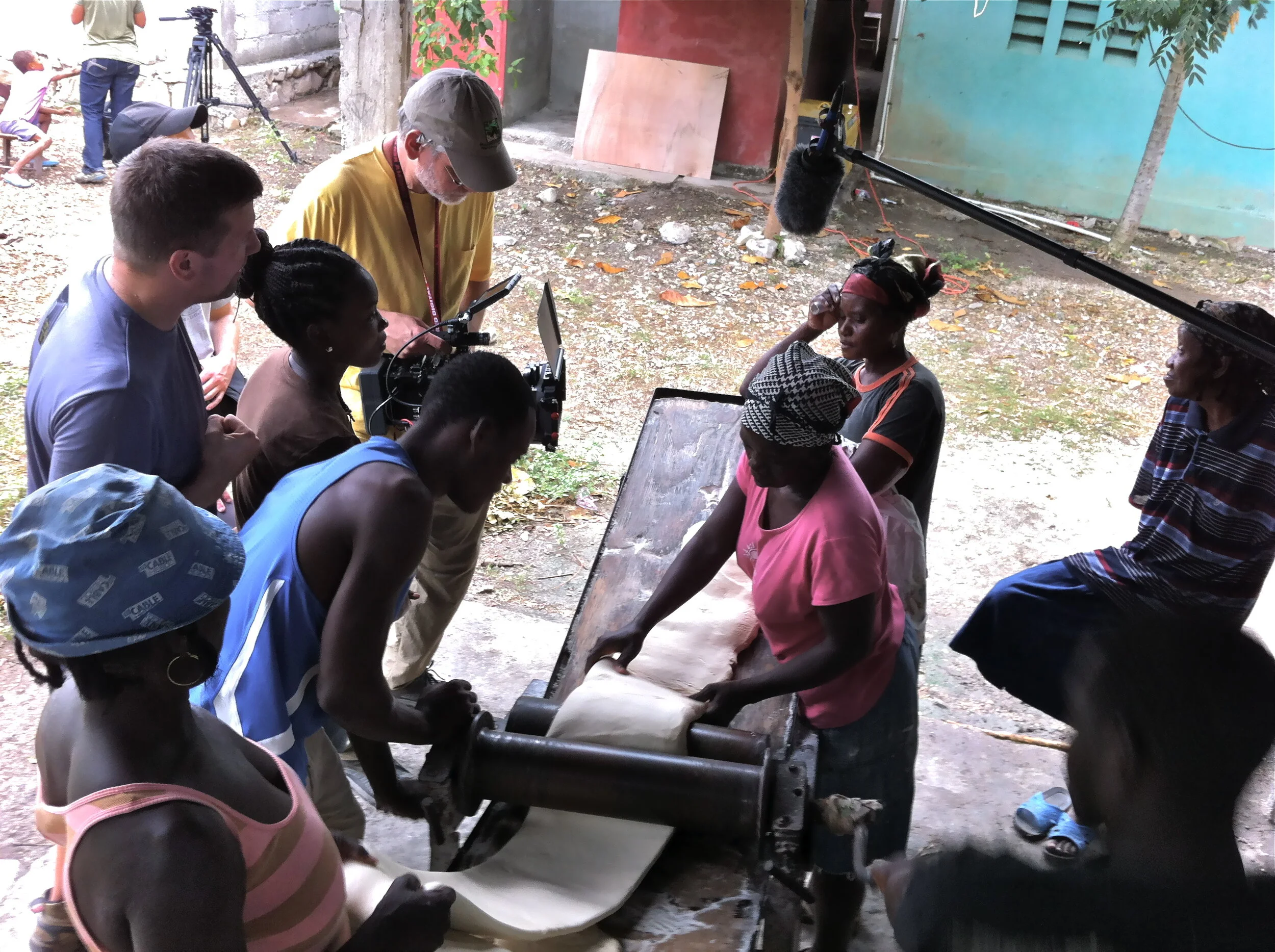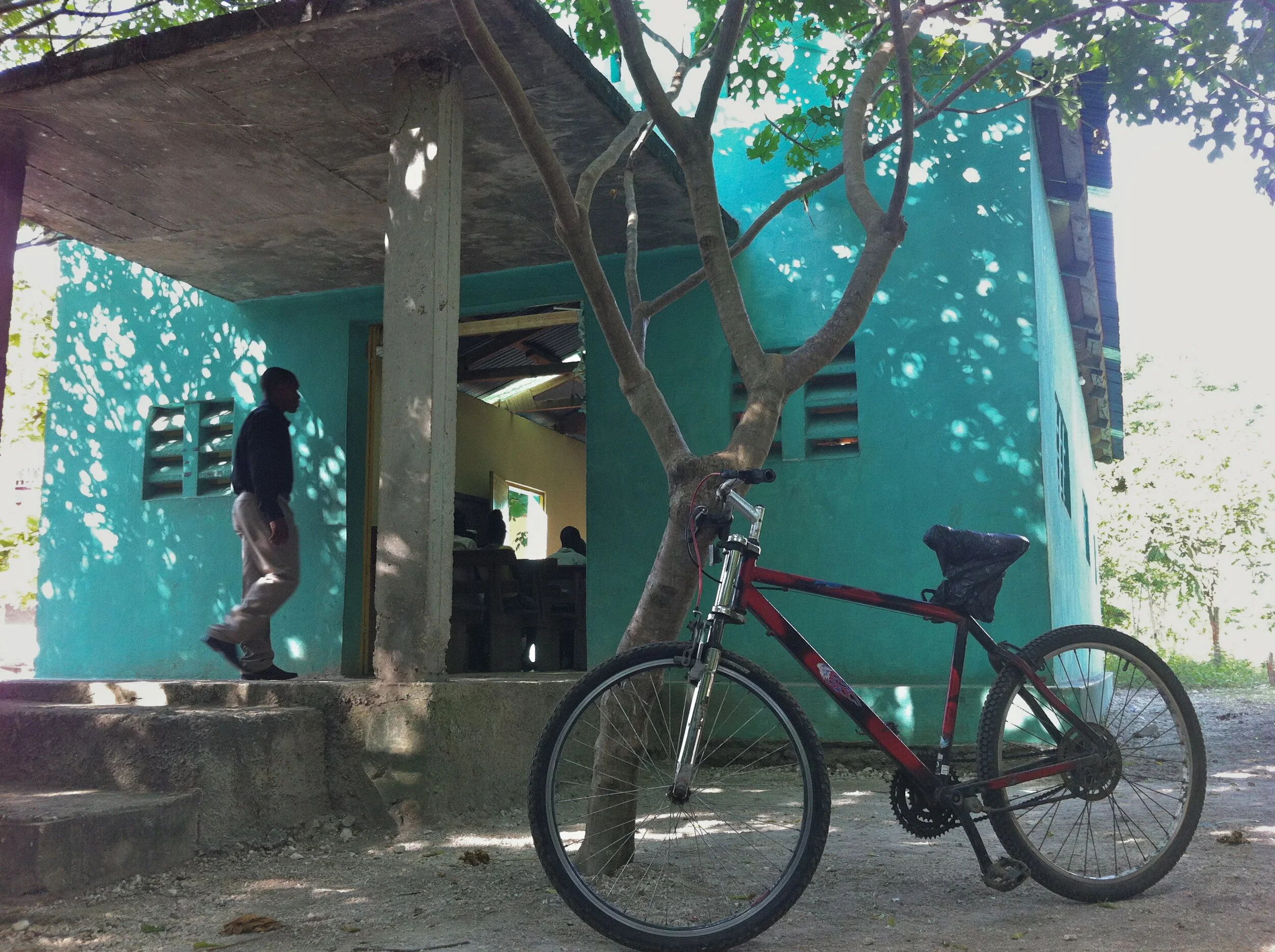Donor Interviews: Meet Anita Harnish
Anita Harnish was first introduced to the people of Haiti in 1990 when she found herself replacing a chaperone on a youth mission trip to Cottin, a small village outside of Port-au-Prince. Falling in love with the island and its people, Anita returned several times to different communities.
Working in film production in Pittsburgh, Anita got to know Haiti H2O co-founders Jeff and Sarah VanderMolen. Jeff always talked about his time in Haiti and the work he was doing partnering with rural Haitians. After becoming a donor, Anita found herself on a trip to Bassin Caiman, Haiti in 2012 with Jeff, Sarah, and others in the local production community. Since then, Anita has continued donating and has served on the board for Haiti H2O for the past three years. Read more about her experience and why she continues to partner with the Haitian people.
What was your first impression of Haiti on your first trip?
I’m glad I studied in Mexico—Mexico was like a little bit of a primer. The first time I went down years ago with high school students to the village of Cottin, you just realize what it’s like to go to a place with no infrastructure. Everything is a big step back. Word of mouth was the way of communication. This was back before cell phones, which is wonderful for people now in Third World countries, but then word of mouth was the way of communication.
Anita’s first trip to Haiti, 1990
What do you remember the most from your trips?
Being packed in the back of a pickup truck with 40 kids, going from the orphanage to the beach and there’s standing room only. Or going down the hill from the citadel in a pickup truck and smelling the brakes burning, hoping you get there safely. It takes forever, to go 10 miles could take two hours. One trip we had three flat tires. When you go down the road, you don’t stay in your lane, you do whatever it takes to avoid the potholes.
It’s some of the simple stuff, some of the interviews in Bassin Caiman with the elders of the community—I like the countryside better than the city. There’s something more gentle and quiet.
How did it change your perspective, coming back from that first trip?
Having a simpler life and trying not to be so selfish...realizing that people with less can have a greater spiritual depth to them. Realizing the distractions are different, but Haitians deal with their own set of distractions. Like, I don’t have to worry about transportation here, I don’t have to worry about food scarcity. I don’t have to worry about what would happen if I fell ill. I don’t have to worry about clean water. I don’t have to worry about sanitation. There’s so many things we take for granted. I always used to feel embarrassed when a Haitian came for a visit and it was their first time here—I actually felt embarrassed because it’s a lot. I think about what that must be like, girls who came from Haiti for school and have never been on an airplane before, or never been in a mall with revolving doors and escalators, and it’s just overload. When you come back as an American after being in Haiti for a week or two, it’s just like, how much do we need, really?
Bread Machine micro-business in Bassin Caiman, Haiti
Photo by Anita Harnish
What inspires you to stay involved with Haiti?
It’s amazing to me that the poorest country in the Western Hemisphere is not that far from the United States. I believe in the mission of empowering Haitians in whatever endeavor, whether that’s education or jobs or whatever. It’s a country with an interesting history, and it’s a country that really opened my eyes to Third World poverty. For selfish reasons, I appreciate that I was introduced to Haiti because it changes the way you live your life, I think.
What impact has donating had on you personally?
It fights that natural desire to be totally selfish. I was always fascinated by the scripture that “the poor will be with you always.” I still wonder what that really means. What’s my role? It sits with me. The lesson is not “why bother?” I feel like it’s this mirror of “we will always see that,” so what are we going to do about it?
What have you learned from your time spent with Haiti H2O?
I think the organization is very thoughtful and not reactionary. I think there is enough fluidity to really think through what our role is. How can we contribute to our partners in Haiti, and what is the best way? It’s not just going by the old standard of what has worked before. I think there is a lot of conversation. It’s not a fast-moving organization, and that’s not a bad thing.
What has encouraged you to continue supporting the four partner communities through Haiti H2O?
For mission work, it’s the long game. I read Travesty in Haiti and The Big Truck That Went By. I learned from both those books that Haiti has the most NGOs [non-governmental organizations] than any other country in the world. All these projects that stop and start and stop and start, because there’s not thought. Maybe the Haitians aren’t considered—is it valuable for the culture and the environment and the country. If you send down equipment? Do they know how to fix it? Do you train someone how to fix it? Do you have the funds to fix it? What kinds of results are we looking at? It’s a country I believe in and a country where I want to see people thrive. Who am I to say that us sending mission trips down there is better than what they are doing inside their own country? And we are providing the funding for them to do that.
Haiti is littered with failed projects and people that gave up. I don’t want to be in that category of people who gave up.
Photo by Anita Harnish





